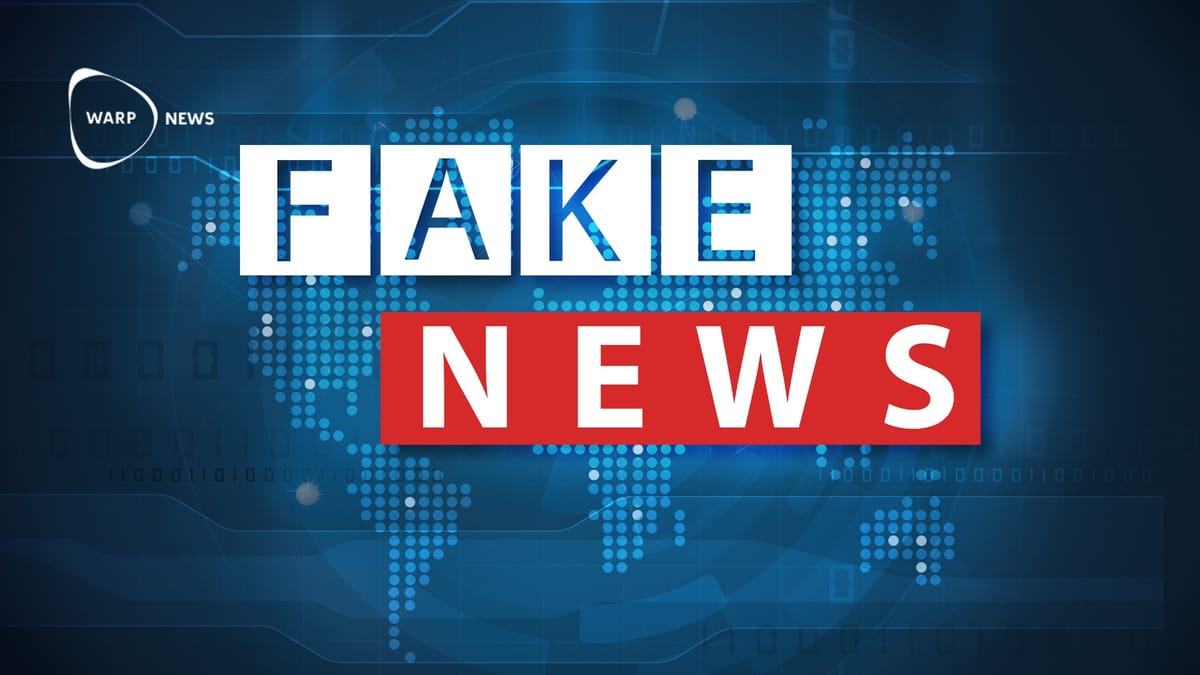
🔎 We were supposed to be flooded with AI disinformation... now 800 million have voted, where is it?
We faced a "tech-driven Armageddon" and experts ranked AI disinformation as the second biggest global threat this year. Have you noticed much of it?
Share this story!
"A tech-driven Armageddon"
The two largest elections of the super-election year 2024, India and the EU, have now taken place. Approximately 800 million voters have cast their votes. Warnings about being flooded with AI disinformation have been frequent, and it was said the effect would be very serious.
"We are heading towards a tech-driven Armageddon," claimed Nobel laureate Maria Ressa. 1500 experts from academia, industry, government, the international community, and civil society ranked AI-generated disinformation as the second biggest global threat this year. (War came in fifth place.)
Have you noticed much of it? Has all this AI disinformation shaken the election campaigns and their outcomes?
The most well-known example of a fake AI image is the Pope in a funny jacket:

Someone has apparently also made an image of the Pope in a funny hat:

Examples of AI-generated disinformation have occurred, but they seem to have had little spread and even less impact. In India, for example, deep fakes of two Bollywood stars promoting political propaganda were created. They were quickly exposed and reported to the police. A picture was made of Dutch EU candidate Frans Timmermans on a private jet when he was actually flying on a regular flight. It was discovered and debunked.
There are more examples, but no wave of disinformation is visible. However, we need to await more comprehensive reviews to be sure.
What happened in the world's most attacked country?
For an evaluation, we can look at an election held earlier this year in a country in a very vulnerable position, Taiwan. China has a significant interest in influencing the election, including through disinformation. Taiwan is possibly the most exposed country in the world to information warfare. There are now reports on what happened in the election.
They conclude that yes, there are coordinated disinformation efforts against Taiwan, mainly from China. The closer the election came, the more spread there was from troll accounts. Some of this was AI-generated but constituted a low percentage of all information related to the election (1.6 percent of social media content came from troll accounts, and it is unclear how much was AI-generated.)
The most comprehensive report states that the disinformation did not affect the election debate or the election result.
Taiwan's Minister for Digital Affairs, Audrey Tang, comes to the same conclusion. Despite this information warfare being very active for at least a decade, post-election polarization was at a record low:
"I'm really happy to report that our January election was remarkably free of polarization. In fact, the effective polarization, how people view each other across parties, went to a historic low after the election," she said in an interview at the Copenhagen Democracy Summit.

A real problem, but the magnitude is exaggerated
AI-generated disinformation is a real problem. AI makes it easier to create credible images, videos, and audio. Of course, it will be increasingly used in disinformation. But that does not automatically make it a big problem and definitely not a "tech-driven Armageddon" or the second biggest global threat.
It doesn't matter if a lot of disinformation is produced if it doesn't reach people and actually influence them. A new study, which we wrote about yesterday, shows just that:
- Disinformation reaches very few and those who are already extreme.
- It is not social media algorithms that feed people with propaganda, people actively seek it out themselves.
When disinformation actually reaches people, it also needs to influence them. Those who see it must believe it, contribute to changing or reinforcing an opinion, and finally, affect how they vote or act in other ways. This is very difficult, even with AI. I have developed this idea further before.
 Warp NewsMathias Sundin
Warp NewsMathias Sundin
This does not mean we can sit back and relax. On the contrary, we must ensure we have effective countermeasures. Taiwan works actively on this, and the result speaks for itself.
Mathias Sundin
The Angry Optimist
By becoming a premium supporter, you help in the creation and sharing of fact-based optimistic news all over the world.


